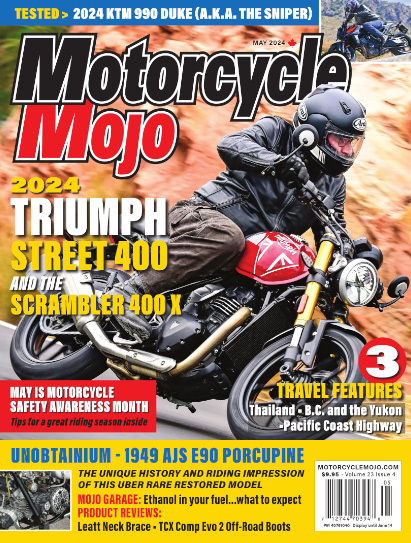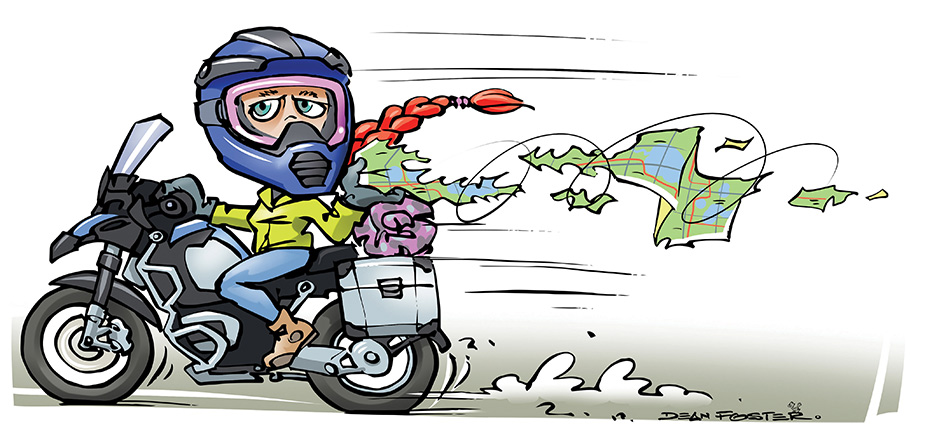Maybe it’s me… maybe it’s the GPS. Regardless, we just don’t get along, and we never have. I’m a paper person when it comes right down to it. I carry maps with me and spend my nights looking at possible routes, trying to gauge how long it’ll take, counting kilometres with a string. There’s something romantic about the whole process.
Perhaps my love of maps is in part because I’ve never enjoyed being told what to do. Having something lay out a route, stating it’s the best or most efficient, somehow only leads to me questioning how an inanimate object could prove itself smarter than me.
Recently, I had a couple of friends stay at my place, both in their thirties and well-adapted to technology. Although we never spoke much about it, it was obvious that they generally relied on their phones or GPS to plan their routes for each trip they would take.
They were travelling west to Vancouver and had a route planned through the Okanagan and to Highway 3. The route offered winding roads, incredible views, and a large forest fire that stretched across the mountainside and highway, shutting down the whole area for travel. Of course, their GPS didn’t state this, and while a paper map wouldn’t either, it was clear they didn’t have a Plan B to complete their trip.
In the morning, as we enjoyed our coffee, I pulled out my Destination Highways book and corresponding map, along with the Backroad Mapbooks, my favourite navigation source, and started looking for alternate routes.
As I laid out the maps, I could see the intrigue in their eyes. I had a feeling they didn’t rely on maps often but now, sitting with our coffee and looking at all the possible routes, their imaginations had been sparked, and the inspiration had come to them. We examined options, referencing the Destination Highways book with the map and found a perfect route for them that incorporated many of the best roads in B.C. It was not short, efficient, or direct, but that wasn’t the goal. Without technology, we found the best roads that were offered along the way to their final destination.
We could see every road at once – the big picture – instead of looking through a microscope at small areas and losing detail as you’d zoom out. Examining each curve placed in ink, caressing rivers or following each rock that juts out of the mountainside. For me, it’s an enjoyable routine I look forward to each time I’m planning a trip. For them, it seemed like a new experience, like children realizing how big the world is for the first time.
Maps inspire exploration, and instead of the complacency that comes with the ease of being told exactly what route you should ride, you have choices; choices that may change or predict the outcome of your trip and experience differently than a GPS would lay out for you.
Recently, I was reminded of other important skills that map-reading had embedded into my mind. I was in Portugal riding with a friend. It was my first time there and the beauty and history were exceptional, although some roads and routes were not well-signed. As my friend, Miguel, guided us from place to place we had to continue to pull over so he could pull out his phone to make sure we were going in the right direction.
Before we left each time, I would look at the route, and take note of the kilometres, the highway or road numbers, as well as the general distance of mandatory turns. I found myself counting kilometres and taking detailed notes of our route without the phone. This is perhaps a skill that people not used to relying on a map wouldn’t have acquired over the years. Soon we found ourselves attempting to ride through someone’s farm while their dog chased us, because the GPS told us that was the way to go.
Each time we’d miss a turn I would notice, while Miguel would continue along the route. The way he travelled wasn’t wrong, it was just different. He had always had a GPS, but now with a rental bike and no GPS or phone mount, he had little to reference regarding direction.
Not relying on a screen, I believe, is a valuable skill to practice. I also find it can help to keep you focused while riding. If you are always following a screen, it may be easier to become distracted or complacent, instead of staying aware of your route and how much further you must go.
So whether you use a map or GPS, remember: there’s always a less efficient, less direct and far more entertaining way to get to your destination. Sometimes you just need to pull out a map and look at the big picture.










